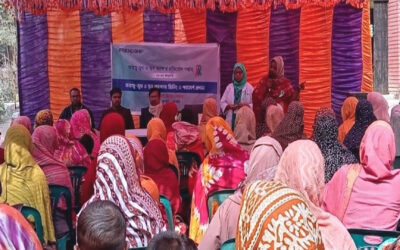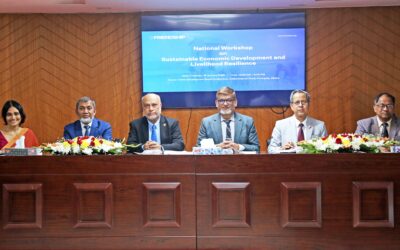Celebrating the accomplishment of two Friendship School students for the International Day of the Girl Child
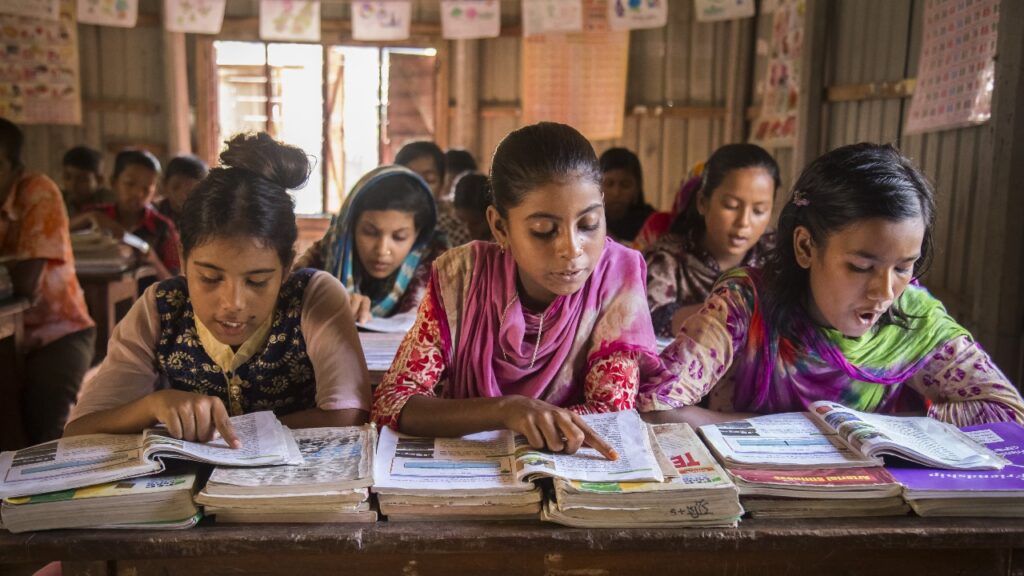
by Iffat Ara Sharmeen,
October 11, 2024
For a girl living in the chars, her hopes and dreams usually get buried deep within discrimination. This International Day of the Girl Child, two Friendship school alumni share their biggest challenges as girls, and how they found strength and success despite everything.
When a girl’s life is controlled by others, her potential remains unrealised. While urbanisation has helped some, girls in remote, marginalised communities are still left behind, trapped by early marriage, abuse, societal pressures from conservative communities and a sense of hopelessness. UNICEF noted that with proven interventions in healthcare, education, and skill development, even they can succeed. Bipasha Khatun and Khaleda Khatun are proof that a little push of opportunity can indeed do wonders for girls left behind.
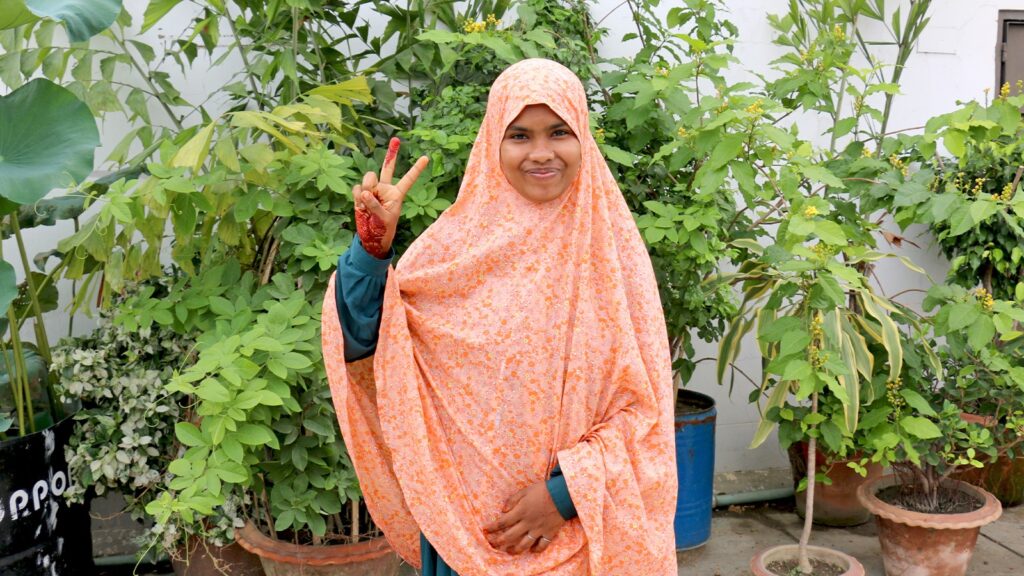
Being A Girl: A Challenge
“I had a dream – to become a doctor, but I was told that I must get married early to keep my character in line,” said Bipasha Khatun, Friendship School Chowmohon alumni and – as it turns out – first-year medical college student
Born in a remote, climate-vulnerable sedimentary river island (char) in Gaibandha, Bipasha Khatun’s life was almost destined to be like any other girl in the char. With a bare minimum education and parents who struggled to make ends meet, she was about to get married as a child. As the eldest child, she was expected to adhere to societal expectations and responsibilities, but she had a dream. There were no healthcare workers or general health awareness on the island, which fuelled her dream of wanting to be a doctor.
She began her schooling at Friendship School Chowmohon. After completing primary school in 2014, she moved to a relative’s home in Lalmonirhat for her Secondary School Certificate (SSC) exam. Despite resistance from her parents, who worried about her young age and societal judgement, she persisted and earned good grades. She later moved to Rangpur for her Higher Secondary Certificate (HSC) exam and was accepted into the civil engineering department at Shahjalal University of Science and Technology (SUST).
“My biggest challenge so far was that I was a girl, so travelling, studying, and doing anything outside my home did not sit well with my community.”
Bipasha’s parents urged her not to go as far as Sylhet, where she would have to study engineering instead of medicine. She explored options closer to Gaibandha and though she did not pass the public medical college exam, she secured a full scholarship at the Holy Family Red Crescent Medical College with the support of Friendship’s Career Guidance Cell (CGC). Her parents were overjoyed. Bipasha, now enjoying her classes, aspires to become a cardiac surgeon and bring healthcare to her village.
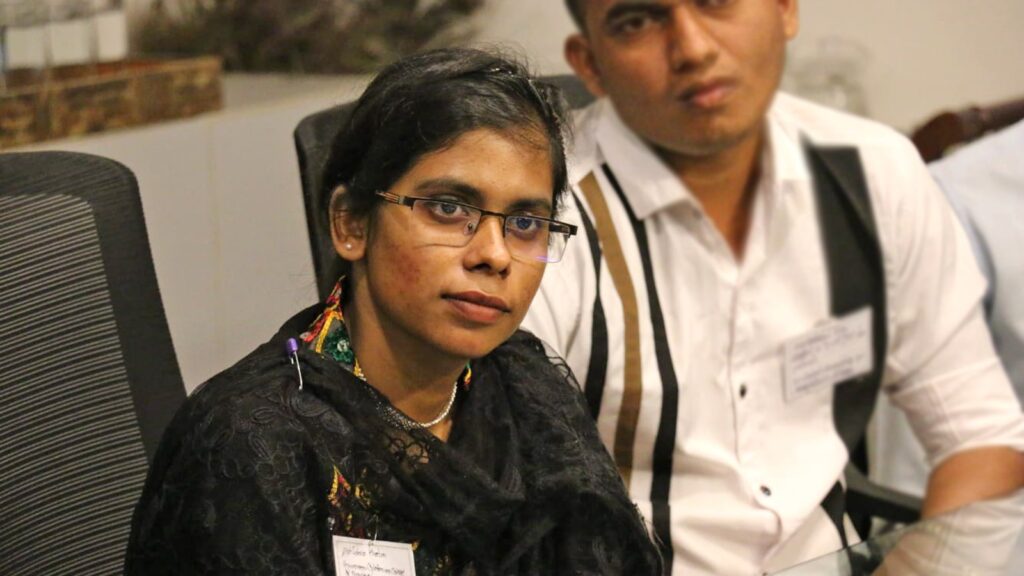
Being A Girl: A Matter of Pride
According to UNICEF, one in five women between 20 to 24 years of age got married as children. Despite such unfortunate settings, girls like Mosammat Khaleda Khatun are taking courageous steps to fight for their rights and get what they deserve and dream of. Khaleda Khatun from Paglar Char, Gaibandha, struggled from a very young age to get an education. Today, she is a meritorious student at the Ayat College of Nursing & Health Sciences.
“My village had no secondary schools. Our nearest government secondary school was almost two hours away on foot, and as a girl, going there was not possible. I had no money to travel that far either. No one wanted to tutor me. No one could help me get admission in the sixth grade,” said Khaleda Khatun.
Khaleda Khatun soon enrolled in the Friendship Secondary School in her area. She was about to get married in the seventh grade when she was around 13 years of age. She achieved first position in the eighth grade and was then able to move up to ninth grade in the Friendship school instead of getting married.
“In school, I was asked what I wanted to be. I couldn’t answer it, because I thought of my parents, and how I could leave them in their financial struggles and chase my ambition for education.”
Getting into a high school was even more difficult as an adolescent girl. Friendship’s CGC division assured her to continue her pursuit of higher education. Her application to a private nursing college was soon accepted. The CGC supported her scholarship process to ensure she gets the quality education she deserves.
Recognising and providing the most basic rights to girls is essential for their empowerment and success. Girls like Bipasha and Khaleda today are not just bright young students, but also an inspiration to the younger generation. They realised their visions for their future and found self-determination with the right resources and opportunities. The immediate impact is making families, communities, and economies stronger.

